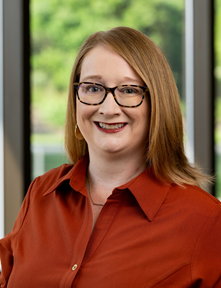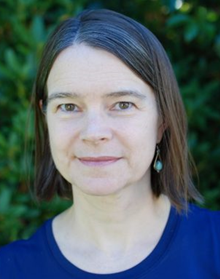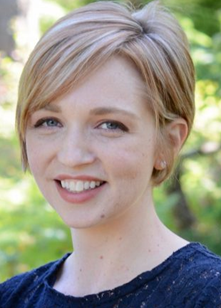Speakers & Acknowledgements
Keynote Speaker

Marta Di Forti, MD, PhD
King’s College London, UK
Dr. Marta Di Forti is a Clinical Reader in Psychosis Research at the Dept of Social, Developmental and Genetic Research, KCL. She leads the first Cannabis Clinic for patients with Psychotic disorders in UK. In 2021 she was awarded the Royal College of Psychiatrist Researcher of the year prize. In 2020. Dr. Di Forti was granted an MRC Senior Research Fellowship to expand her research in the role of cannabis use in psychosis and its underlying biology. Her MRC SRF employs technologies like virtual reality, genetic data, DNA methylation data, and peripheral levels of endocannabinoids from human participants in parallel to running an animal model experiment of pubertal exposure to cannabinoids to investigate biological markers of susceptibility to psychosis among heavy cannabis users.
Additional Speakers (alphabetical)

Erin Bonar, PhD
University of Michigan
Dr. Erin E. Bonar is a licensed clinical psychologist and Professor with tenure in the Department of Psychiatry at the University of Michigan in the Addiction Center. She was recently recognized as the inaugural Kathy Fant Brzoznowski Research Professor in Behavioral Health Technology Interventions and is also the Director of Research Strategy at the Michigan Innovations in Addiction Care through Research and Education program. She studies ways to prevent and treat substance use disorders spanning developmental periods of adolescence, emerging adulthood and adulthood. Dr. Bonar’s work uses novel technologies including social media, telemedicine, and patient portal approaches. Her approaches often employ Motivational Interviewing and she is a member of the Motivational Interviewing Network of Trainers.

Beatriz Carlini, PhD, MPH
Symposium Chair
University of Washington
Dr. Beatriz (Bia) Carlini, PhD, MPH, is Research Associate Professor at the University of Washington Addictions, Drug & Alcohol Institute, Department of Psychiatry & Behavioral Sciences. Her research career has been dedicated to understanding the public health impact of legal psychoactive substance use (such as alcohol, inhalants, tobacco, and cannabis) and policies on social and health outcomes.
Since 2016, Dr. Carlini has led the ADAI Cannabis Research and Education Program, conducting cannabis research that assists Washington community-based agencies, government agencies, and policymakers in making decisions and setting priorities. Dr. Carlini has been a pioneer in bringing awareness of the sharp increase in the availability and risks of high-THC content products brought by cannabis legalization in WA. In 2020, she chaired the PRSC Cannabis Concentration Workgroup composed of UW and WSU scientists, which authored a Consensus Statement and Report on Cannabis Concentration and Health Risks. In 2021-22, Dr. Carlini led a contract with the WA State Health Care Authority funded by ESSB 5092 to identify areas of common ground and consensus and develop recommendations for state policies related to cannabis concentration and mitigating detrimental health impacts. As a result, a report to WA Legislature was published in December 2022, with policy recommendations.
As a first-generation immigrant and a foreign-born American citizen, Dr. Carlini is especially interested in the impact of cannabis and tobacco use on perpetuating health and social disparities. Dr. Carlini has a passion for fostering social inclusion, challenging stereotypes, and fighting stigma. She applies an equity lens to her work as a researcher and educator.

Deepak Cyril D’Souza, MD
Yale University School of Medicine
Dr. Deepak Cyril D’Souza is the Vikram Sodhi Professor of Psychiatry, Yale University School of Medicine. He is a staff psychiatrist at VA Connecticut Healthcare System (VACHS) where he has worked since 1992. He is an active clinician, teacher and researcher, with 30 years of experience. Dr. D’Souza has been using psychopharmacological probes such as ketamine, THC and amphetamine to evaluate the contributions of various neurotransmitter systems to the pathophysiology of psychosis, cognitive deficits, and reward processing. He also conducts clinical phase 1 to phase 4 trials in neuropsychiatric disorders. Finally, Dr. D’Souza uses neuroreceptor imaging to study neuropsychiatric disorders. His research is funded by the U.S. National Institute of Drug Abuse, the National Institute of Mental Health, the National Institute of Alcoholism and Alcohol Abuse, VA R&D and several foundations. His work has been published in Molecular Psychiatry, Biological Psychiatry, American Journal of Psychiatry and Neuropsychopharmacology. He is the Principal Editor of the journal Psychopharmacology. He serves on the Physician’s Advisory Board for the State of Connecticut’s Medical Marijuana Program, and he is the inaugural Director of the newly created Yale Center for the Science of Cannabis and Cannabinoids.

Lindsey Hines, PhD
University of Bath, UK
Dr. Lindsey Hines has expertise is in the epidemiology of drug use, with a focus on the causes and consequences of cannabis use during adolescence. Her current work explores the pathways between adverse childhood experiences, frequent drug use in adolescence, and mental health problems in later life. Through analysis of large, longitudinal cohorts, she aims to produce work with practical utility for informing mental health intervention.

Jason Kilmer, PhD
University of Washington
Dr. Jason Kilmer is a Professor in Psychiatry and Behavioral Sciences at the University of Washington (UW) School of Medicine and an Adjunct Professor in Psychology at UW. Dr. Kilmer serves as an investigator on several studies evaluating prevention and intervention efforts for alcohol, cannabis, and other drug use by college students. In addition to research and teaching, he has worked extensively with college students and student groups around alcohol and other drug prevention programming and presentations throughout his career (including student athletes, fraternity and sorority members, residence life, and first-year students), both at UW and on over 140 campuses across the nation. Dr. Kilmer also serves as the chairperson of Washington state’s College Coalition on Substance misuse, Advocacy, and Prevention. He is principal investigator of Washington’s Young Adult Health Survey, now in its 11th year of data collection. He was one of the six members of the development team for the National Institute on Alcohol Abuse and Alcoholism’s College Alcohol Intervention Matrix (CollegeAIM). Dr. Kilmer was the 2014 recipient of the National Prevention Network’s Award of Excellence for outstanding contributions to the field of prevention, and was also the 2017 recipient of the Washington State Prevention Professional Award of Excellence.

Daniel Myran, MD, MPH
Ottawa Hospital Research Institute, Canada
Dr. Daniel Myran is a Public Health and Preventative Medicine physician, a Family Physician, and researcher. He holds a Canada Research Chair in Social Accountability at uOttawa and is an assistant professor in the Department of Family Medicine. He practices family medicine with an interest in addiction medicine. Dr. Myran’s research uses health administrative data to investigate two areas. First, tracking healthcare visits for mental health and substance use at the population-level and investigating the impact of policy (e.g., legalization of non-medical cannabis) on these outcomes. Second, understanding patterns of mental health service use by physicians and identifying policy options to improve access to comprehensive primary care. A key focus of both streams of work is investigating differences in outcomes across systematically disadvantaged groups to identify and mitigate health inequities in society.

Denise Walker, PhD
University of Washington
Dr. Denise Walker is a Research Professor at the University of Washington, Director of the Innovative Programs Research Group and is a licensed clinical psychologist. She received her doctorate in clinical psychology from the University of New Mexico, completed her predoctoral internship at Yale University and postdoctoral fellowship at the University of Washington. A main area of her research expertise is on the development and evaluation of interventions for cannabis use disorders for both adults and adolescents, utilizing brief interventions (Motivational Enhancement Therapy, MET), longer courses of treatment (MET+CBT), and aftercare. She has been involved in the development and evaluation of the Teen Marijuana Check-Up (TMCU), a school-based intervention to elicit self-referral by heavy using adolescents. The TMCU has been the focus of five clinical trials and is identified as an “Evidence Based” intervention on the NREPP. For the past four years, Dr. Walker has been applying her work to psychosis populations and was a 2023 Garvey Institute for Brain Health Solutions grant awardee. This work focused on the adaptation of MET to address cannabis use among young adults with psychosis. Other areas of her research include adapting the Check-Up model (a motivational interviewing intervention) for other high risk populations (active duty military experiencing alcohol use disorder or PTSD; domestic violence perpetrators) and optimizing evidence-based treatments for specific populations (Native Americans) or settings (schools).

Katherine Walukevich-Dienst, PhD
University of Washington
Dr. Katherine Walukevich-Dienst is a licensed clinical psychologist and Acting Assistant Professor at the University of Washington. Her research is focused on identifying psychosocial and contextual factors associated with alcohol and cannabis misuse and co-use among young adults, including social influences (e.g., romantic partners, use partnerships), affect management motives, co-occurring mental health concerns, and high-risk substance use events and contexts. Dr. Walukevich-Dienst aims to leverage this information to develop and test innovative, technology-informed prevention and intervention efforts to disseminate in real world settings. She also provides psychotherapy to patients at the University of Washington’s Outpatient Psychiatry Clinic and provides supervision and training to psychology graduate students and psychiatry residents in Cognitive Behavioral Therapy.
Moderators

Harrison Fontaine, PhD
Washington State Health Care Authority
Dr. Harrison Fontaine is the Policy and Program Manager serving as the cannabis subject matter expert and legislative lead for the SUD Prevention and Mental Health Promotion Section of the Division of Behavioral Health and Recovery. He is passionate about policy-level changes to support equitable health systems and the health of all Washingtonians. Dr. Fontaine obtained his PhD in Pharmacology from the University of Washington’s Center for the Neurobiology of Addiction, Pain, and Emotion. He joined the Health Care Authority in 2022.

Sharon Garrett, MPH, MA
University of Washington
Sharon Garrett, MPH, MA is a Research Scientist at the University of Washington’s Addictions, Drug & Alcohol Institute (ADAI). Since 2012, she has been an active member of ADAI’s Cannabis Education & Research Program (CERP), where she has collaborated on various projects exploring public health impacts of cannabis legalization in WA State. She has been a Project Coordinator in the development of three online trainings; a CME course for healthcare providers on the use of cannabis to treat chronic pain, and two cannabis trainings designed for helpline staff and for the public. She has also contributed to projects funded by the WA State I-502 dedicated marijuana fund to better understand adult cannabis use in the context of legalization, including focus groups with adult cannabis users, cannabis retail store staff, and parents who use cannabis. In 2022, this team evaluated policy options for reducing harms related to high-THC products, resulting in a package of recommendations for the WA State legislature.

Marie Gray, MS
Washington State Department of Health
Marie Gray is the Youth Cannabis & Commercial Tobacco Prevention Program co-manager within the Washington State Department of Health. She received her Master’s Degree from Washington State University in Prevention Science with an emphasis on program development, implementation, and evaluation. Her work focuses on community driven substance use prevention and education focused around youth and emerging adults.

Kristen Haley, BA
Washington State Liquor and Cannabis Board
Kristen Haley has a BS in Community Health Education from Western Washington University and has 15 years of experience working at the community and state levels. She spent nearly ten years with the Washington State Department of Health where she managed statewide campaigns for suicide prevention, mental health promotion, cannabis prevention and education, tobacco prevention and cessation, opioid overdose prevention, and COVID-19 awareness and prevention. Ms. Haley is the elected Vice President of the Pacific Northwest Social Marketing Association Board of Directors. This role allows her to influence and support behavior change efforts across the region. In her current role at the Washington State Liquor and Cannabis Board, she serves as the Public Health Education Liaison. She centers her work around audience and partner engagement, seeks upstream prevention strategies wherever possible, and believes that collaboration is critical to ensuring safe and healthy communities.

Lyndsey Kellum, MEd
University of Washington
Having earned a Bachelor of Science in Community Health from Western Washington University and a Master of Education from the University of Washington – Tacoma, Lyndsey Kellum has held careers in teaching and public health since 2007. Her work has largely focused on improving the health and well-being of children and youth by increasing access to information and community resources as well as supporting policy, systems, and environmental changes. She joined ADAI’s Cannabis Education & Research Program (CERP) in spring of 2023, where she has collaborated on projects exploring public health impacts of cannabis legalization in Washington State, USA.
Lyndsey is the Project Director and Program Evaluator for CannTalk, a study designed to develop a brief clinical intervention aimed at reducing cannabis related harms among young adults experiencing psychosis.

Sarah Okey, PhD
Washington State Liquor and Cannabis Board
Dr. Sarah Okey manages the newly developed Research Program at the Washington State Liquor and Cannabis Board (LCB). Sarah’s background is in clinical psychology, where she has worked with individuals across the lifespan experiencing co-morbid schizophrenia, psychosis, substance use disorders, and other serious mental health conditions. Her research has focused on the short- and long- term beneficial and harmful consequences associated with various substances, such as cannabis, alcohol, tobacco, psychedelics, and opioids. Over the past year, Dr. Okey has led the development of the Research Program at LCB, which aims to be a transparent resource focused on public health and safety outcomes related to the products, policy, and regulation of alcohol, cannabis, tobacco, and vapor products. She is committed to improving mental health and well-being and believes science communication and nuanced perspectives are critical towards creating a safer and healthier community.
Acknowledgements
ADAI staff Symposium planning and logistics
Beatriz H. Carlini, PhD, MPH – Chair
Meg Brunner, MLIS
Sharon Garrett, MPH, MA
Lyndsey Kellum, MEd
Erinn McGraw, BFA
Lexi Nims, MPH student
Video Recording by UW TV
Catering by Bay Laurel UW
Funded by the Washington State Legislature through ESSB 5187 (2023) and by the University of Washington’s Cannabis Dedicated Account.

